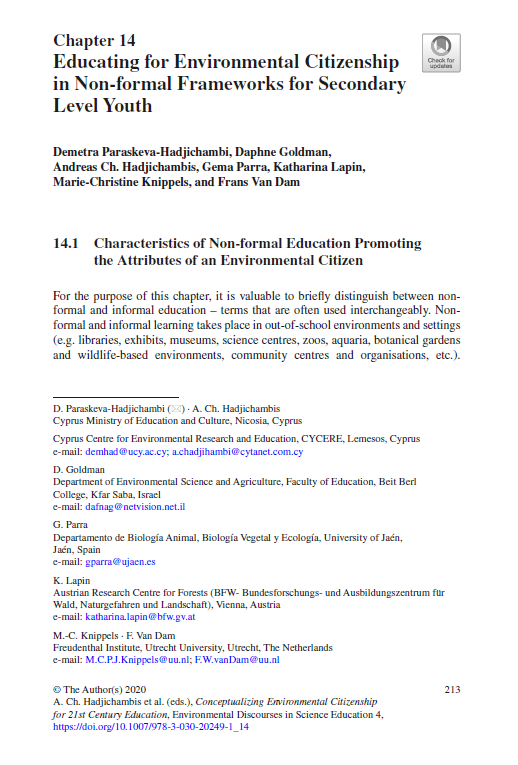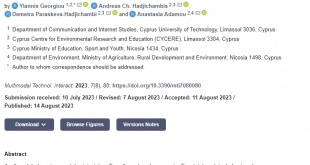Demetra Paraskeva-Hadjichambi, Daphne Goldman, Andreas Ch. Hadjichambis, Gema Parra, Katharina Lapin, Marie-Christine Knippels, and Frans Van Dam
Abstract:
Non-formal education is an integral component to lifelong learning and its aim is for young people and adults to acquire and maintain the skills and competencies necessary to adapt to a continuously changing environment. Non-formal education implements different learning activities and is supplementary to formal education, taking place outside, but supplementary, to the formal educational system. From the conception and throughout the ongoing evolution of environmental education, non-formal education has been identified as an important framework for conducting Environmental Education and Education for Sustainability. Therefore, non-formal settings for secondary education level can contribute to Education for Environmental Citizenship by providing the opportunity and conditions that enable young people to acquire the body of knowledge as well as the skills, values, attitudes and pro-environmental actions necessary to become an Environmental Citizen. In addition, an Environmental Citizen is empowered and motivated to participate in society as an agent-of-change in the direction of solving contemporary environmental problems, preventing the creation of new ones, and achieving sustainability and restoring our (human) relationships with nature. Pedagogies including place-based education, civic ecology education, eco-justice pedagogy, action competence and socio-scientific inquiry-based learning can contribute to building students’ competencies for the deep civic participation necessary to realise environmental and social change. However, due to the novelty of the concept, the lack of a complete pedagogical framework for Education in Environmental Citizenship in non-formal settings presents a major challenge.
Please find attached here the related article

 Κυπριακό Κέντρο Περιβαλλοντικής Έρευνας & Εκπαίδευσης – Κυκπεε
Κυπριακό Κέντρο Περιβαλλοντικής Έρευνας & Εκπαίδευσης – Κυκπεε




